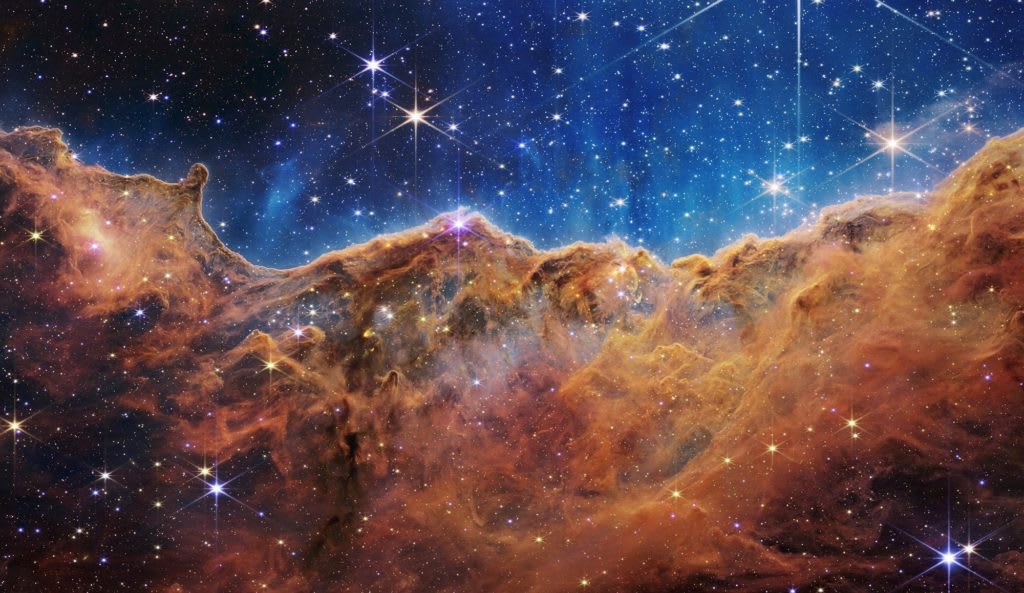Galaxies That Defy Existence Unveiled by NASA
Galaxies that shouldn't exist was discovered!

In recent years, scientists have made two groundbreaking discoveries in our universe using new technologies. These discoveries have provided us with a glimpse into the distant past and have the potential to redefine our understanding of the universe. One of these discoveries was the unveiling of the first color image from the James Webb Space Telescope, which captured a mesmerizing photo of ancient galaxies dating back over 13 billion years, shortly after the Big Bang. This image offered a unique look into the early stages of the universe, akin to browsing through its baby album.
However, the surprises didn't end there. Scientists expected to find small, young galaxies, but instead, they stumbled upon something unexpected: incredibly early and massive galaxies, represented by a tiny red dot. The lead author of the study, Evo Laba, was taken aback when he realized the significance of the numbers associated with these galaxies: an age of 13 billion years and a weight of 100 billion stars. These six massive galaxies turned out to be as old as our own Milky Way, challenging existing models of galaxy formation.
This discovery has major implications for our understanding of how galaxies evolved. Previously, it was believed that galaxies grew gradually, with stars forming slowly and steadily. However, the observations from the James Webb Space Telescope indicate that stars formed at a much faster rate in the early universe than previously thought. This suggests that there might be something missing in our current understanding of galaxy formation, and it has sparked intense discussions among scientists.
While these discoveries have the potential to shake up our cosmological models, it's important not to jump to conclusions just yet. There are various theories that could explain these findings without completely overturning the standard model. For instance, it's possible that the light observed is not coming from stars but from swirling discs of matter around supermassive black holes. Alternatively, there may be more to the story that we have yet to uncover, considering the vastness and mysteries of the universe.
In addition to the discoveries made by Evo Laba's team, another significant breakthrough came from a smaller and more affordable antenna, costing less than five million dollars. This antenna detected a signal from the earliest stars of our universe, revealing unusual temperatures and distinct wave patterns. This signal could potentially be attributed to the influence of dark matter, which is an invisible substance that constitutes a significant portion of the universe and affects the motion of galaxies through its gravitational pull.
If the existence of dark matter is confirmed, it would revolutionize our understanding of the universe. While dark matter cannot be directly observed, its presence can be inferred from its gravitational effects on visible matter. Scientists are still exploring the nature and composition of dark matter, with some proposing exotic particles or entirely new forms of matter that interact differently with light.
These recent discoveries have generated immense excitement within the scientific community. Confirming the existence of dark matter would provide concrete evidence and fundamentally reshape our comprehension of the universe. It is a mystery that, once unraveled, could have a profound impact on our understanding of our origins and the nature of reality.
As we eagerly await further exploration and confirmation of these findings, it's a reminder that even the smallest discoveries can have a tremendous impact on our understanding of the cosmos. The wonders of the universe continue to captivate us, and there is always more to uncover and unravel.





Comments
Mela Mandigma is not accepting comments at the moment
Want to show your support? Send them a one-off tip.